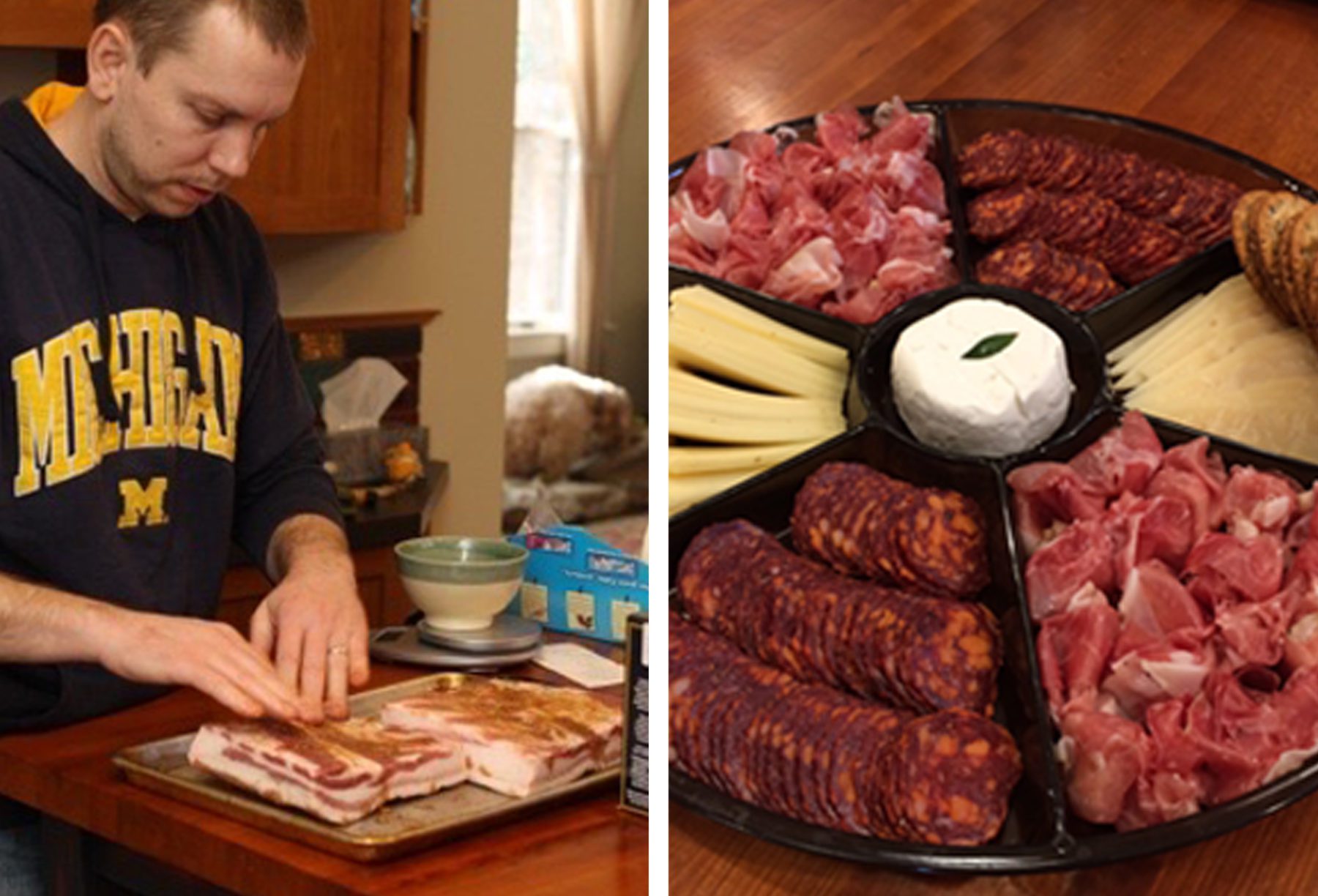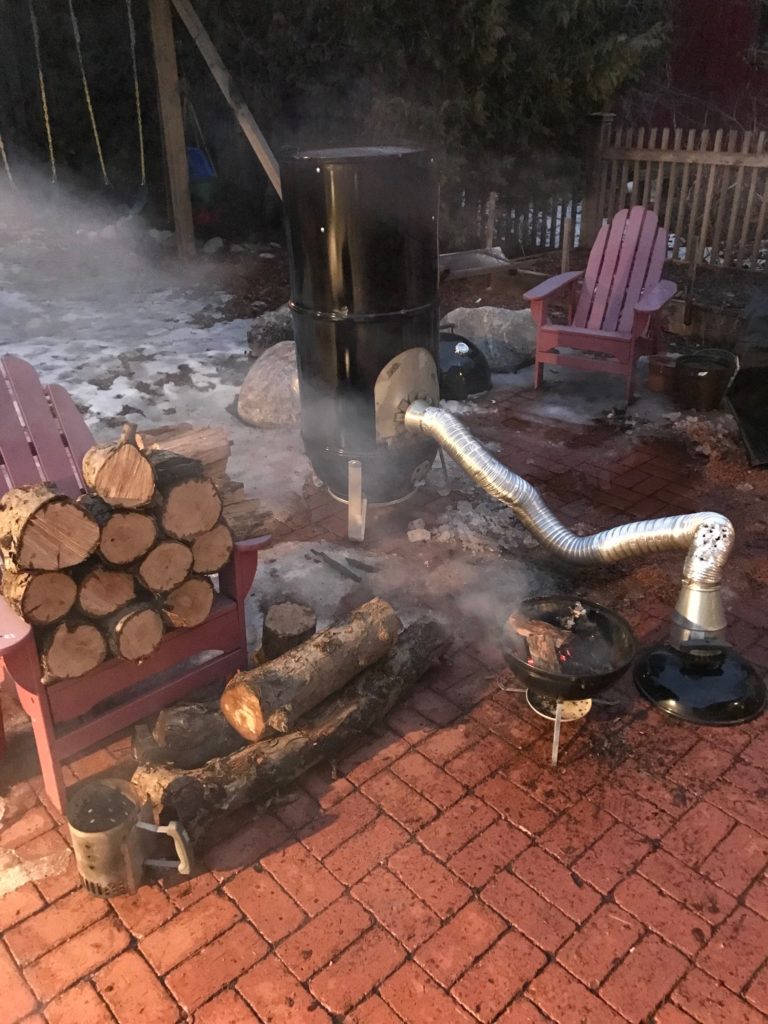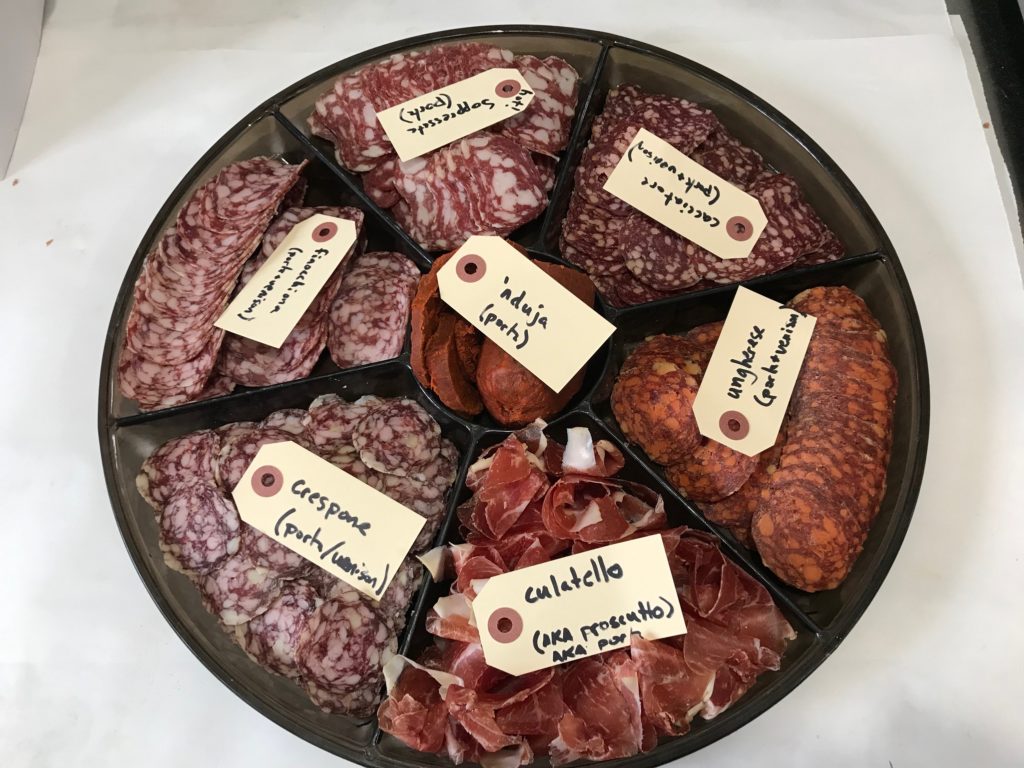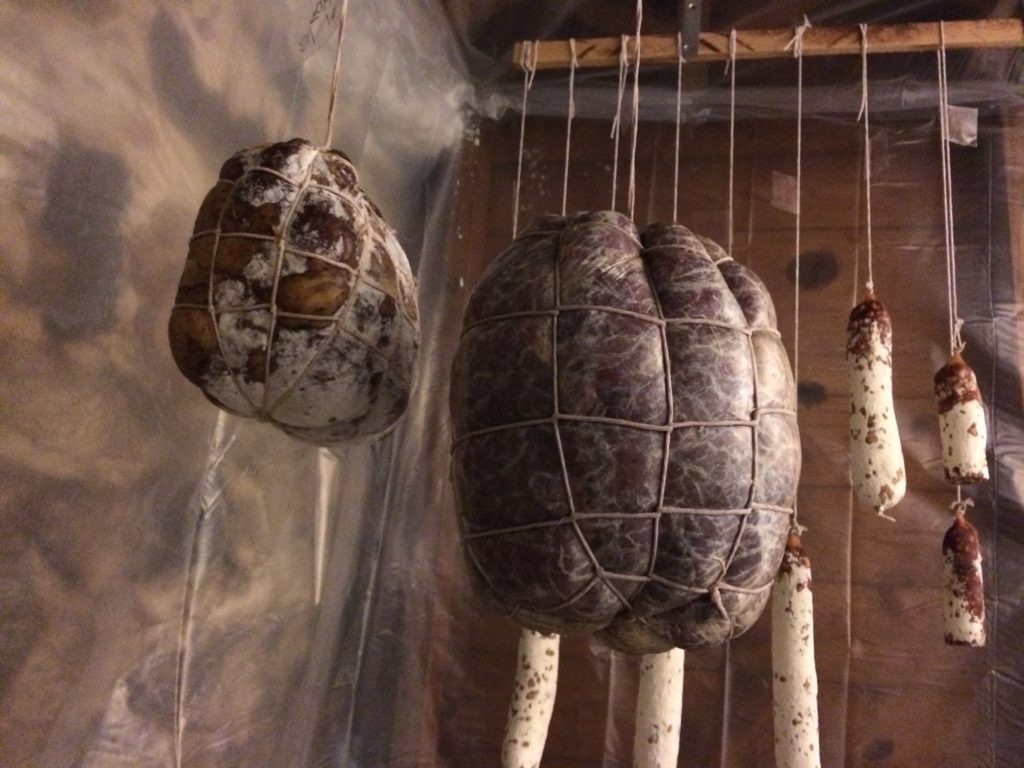Mcity’s resident charcuterie expert knows his bacon

Staff Spotlight: Associate Director Greg McGuire
Greg McGuire was already an accomplished beer home-brewer when he and his wife, Emily, bought their house on the west side of Ann Arbor in 2011.
The house featured a “Michigan basement” with a fieldstone foundation and dirt floor — a “glorified root cellar,” as McGuire put it.
“I was looking around to see what I can do down here in this basement,” said McGuire, associate director of Mcity, the connected and automated vehicle research center within the U-M Office of Research. “I can brew in there, I can ferment things in there. It’s cool and humid. Then somebody said, ‘You could cure salami or something in there,’ so that’s when I got into charcuterie.”
Charcuterie is a centuries-old method of preserving, preparing and assembling cured meats, primarily pork, without the aid of refrigeration or cooking.
Not long after the suggestion of curing salami in his basement, McGuire received as a gift a book titled “Charcuterie: The Craft of Salting, Smoking, and Curing.” He was hooked.
“I’ve been making beer for about 20 years,” he said. “The dry-cured salami I like to make is really about fermentation, and fermentation is the root of all delicious things: beer, cheese, bread, wine, charcuterie. It’s controlled spoilage, and home-brewing was the gateway.”

What started as a way to utilize basement space has turned into a full-fledged hobby for McGuire, who prior to the COVID-19 pandemic shared his wares with co-workers. He has even recruited a couple on the practice.
Stan Baldus, Mcity lab technician, and Tyler Worman, data manager, have both dabbled in charcuterie.
“Stan shot a deer last year at his family place up north, so we took that venison, some pork and fat, ground it up and turned that into dry-cured salami,” McGuire said. “The thing that’s a little strange about it is it’s raw. You’re curing it and eating it, it was never cooked, and that’s true for prosciutto and almost any charcuterie.
“[Mcity Director Huei Peng] was super worried about it because at first he was like, ‘Only one of you can try this every week, then the next week someone else can, because I don’t want the whole team out,’” McGuire joked.
That’s not to say every attempt over the past nine years has resulted in success. Even the most experienced charcuterie makers can have hazardous mold creep into the meat.
McGuire is not one to take chances.
“For things that are going to go for a long time, I spray them with cheese mold,” he said. “It’s germ warfare. Those things grow, which are harmless to us and prevent other bad molds from growing.”

McGuire said he and his co-workers have made several different salamis, including ones that are 4 inches around, soppressata, and Hungarian salami hit with good paprika. While salami is his go-to meat, McGuire went through a culatello phase. Culatello is a kind of boneless prosciutto, or essentially the boneless big muscle of a honey-baked ham.
“If you go to the area of Italy where this thing is famous, it hangs in a teardrop bag for several years as it cures in these caves by a river,” he said. “It’s on my bucket list. If you can get the conditions right where weird things are not growing on it, it just sits and does its thing. Most of (charcuterie) is just staying out of the way long enough for things to taste good.”
“Most of (charcuterie) is just staying out of the way long enough for things to taste good.”
Mcity Associate Director Greg McGuire
McGuire does not regulate the temperature in his basement, so the summer months are not ideal for charcuterie. Anything he wants cured between June and October goes in the refrigerator until cooler conditions allow it to be hung safely.
“Flavor is all in fat, so if you get lean pork that has been bred for supermarket consumption, it would make terrible charcuterie,” he said. “Plus, I like the concept of supporting local farmers and keeping them going.”
Because of state regulations, McGuire is not able to sell his charcuterie, but based on his work experiences, he’d likely succeed in doing so if he so desired. After graduating from Case Western Reserve University in Ohio with a degree in biomedical engineering, he moved to Boston with Emily, then his girlfriend and now his wife.

There, Emily signed up for the new car-sharing service Zipcar, and referred McGuire and his college roommate to serve as the engineering team, which McGuire did for about a decade. It marked the first of several startups he worked at after moving to Austin, Texas. One of them was another car-sharing venture in France with Zipcar’s founder, Robin Chase, before family circumstances brought the McGuires back to Ann Arbor, where he became Mcity’s lab director in 2016 and associate director in 2019.
“I always kept my ear to the ground at U-M, and there was lot of interesting stuff going on in transportation, which was my first love,” he said. “With startups, it’s feast or famine. Now it’s more about doing something interesting, and U-M has that in spades.”
His Mcity co-workers appreciate his work and his charcuterie. For those considering giving charcuterie a try, McGuire says anyone can get started.
“The gateway to charcuterie is bacon,” he said. “Go to Ann Arbor Farmers Market, get a nice slab of pork belly for a couple bucks a pound, some salt, sugar and time in your fridge, and you’ve got bacon. It’s very approachable and makes delicious bacon.”
This story was first published by The University Record, the publication for faculty and staff of the University of Michigan. It was written by Jeff Bleiler.